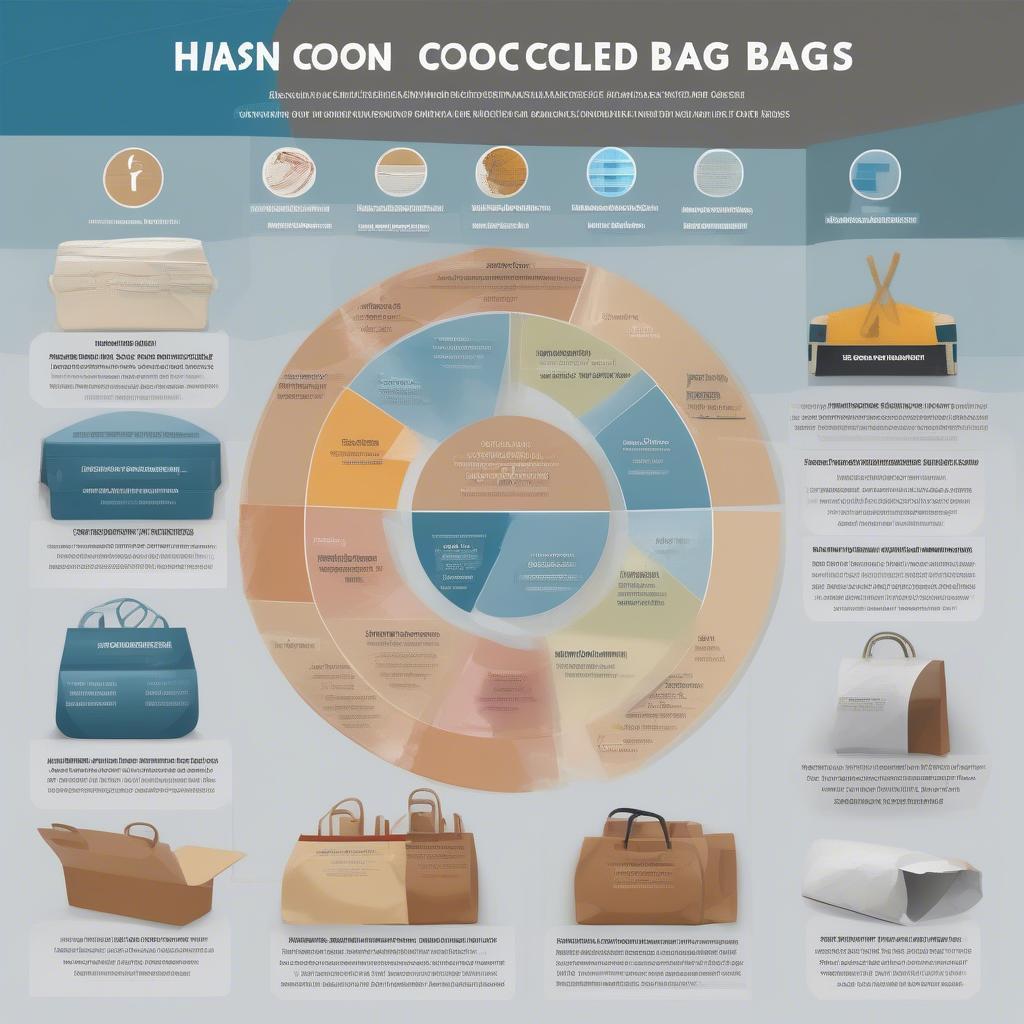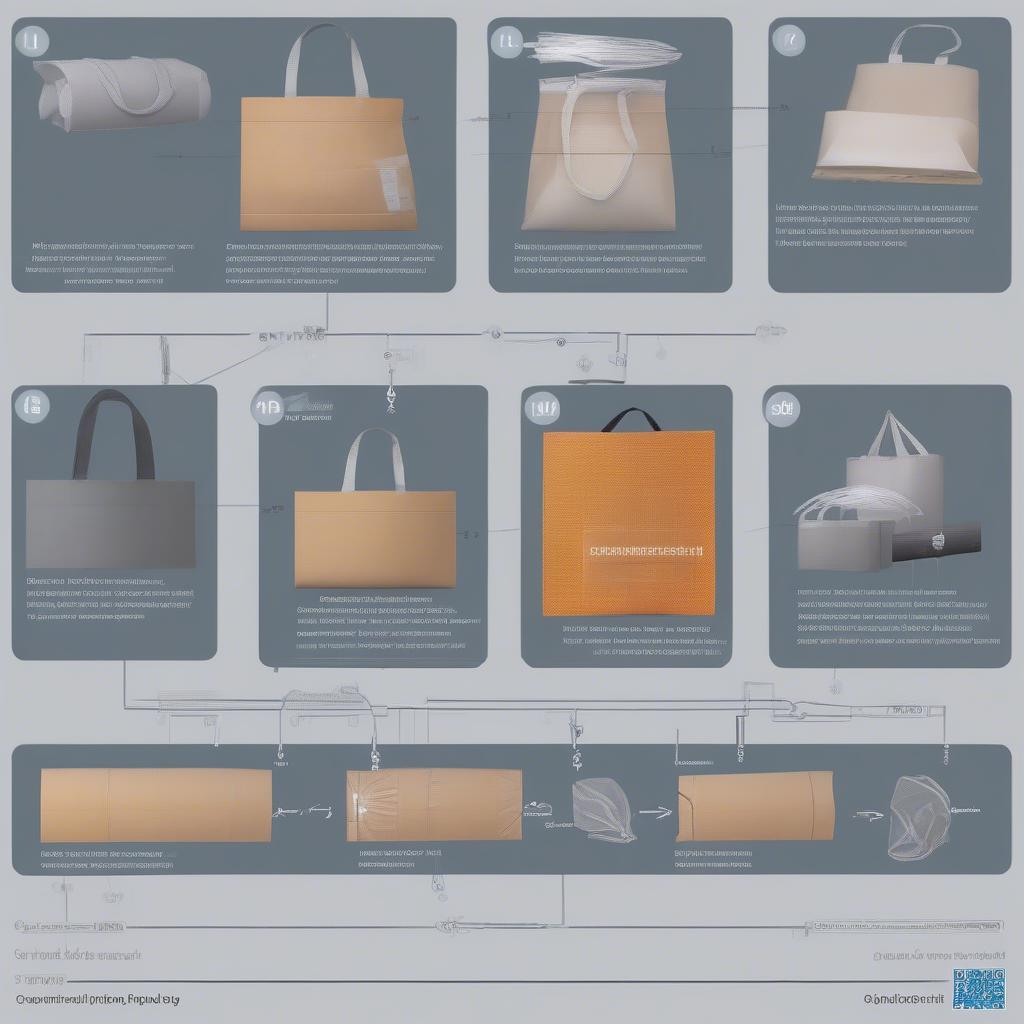Woven Bag
Non Woven Bags HS Code & Understanding Its Implications
Non woven bags hs code &: this seemingly technical term holds the key to understanding import/export regulations, tariffs, and trade practices surrounding non-woven bags. Whether you’re a business importing or exporting these increasingly popular bags, or simply a curious individual, understanding the HS code is crucial.
Decoding the Non Woven Bags HS Code
HS Code, short for Harmonized System Code, is a standardized international system used to classify traded products. This system allows countries to classify goods consistently, enabling efficient customs processes and accurate data collection. The HS Code for non-woven bags isn’t a single code but rather depends on the specific material and intended use. Commonly, non-woven bags fall under HS Codes like 392321 (sacks and bags of polyethylene or polypropylene strip) or 420292 (other bags and sacks). Identifying the correct code is vital for smooth international trade.
 Examples of Non-Woven Bags and Their Potential HS Codes
Examples of Non-Woven Bags and Their Potential HS Codes
Why is the HS Code Important for Non Woven Bags?
The HS Code isn’t just a bureaucratic formality. It has significant practical implications for businesses dealing with non-woven bags. Firstly, it determines the import duties and taxes levied on these bags. Different countries have different tariff rates for various HS Codes, influencing the final cost of imported goods. Secondly, it affects trade statistics. Governments use HS Codes to track import and export volumes, helping them analyze trade patterns and formulate trade policies. Lastly, the HS code is crucial for compliance with trade regulations and agreements. Certain regulations might apply specifically to products under a particular HS code.
Finding the Correct HS Code for Your Non-Woven Bags
Determining the precise HS Code for your non-woven bags can be complex due to the variety of materials, constructions, and intended uses. Consulting with a customs broker or trade expert is highly recommended, especially for businesses involved in international trade. Factors influencing the HS Code include the material composition (polypropylene, polyester, etc.), the bag’s construction (stitched, glued, etc.), and the intended use (shopping, packaging, etc.).
 Factors Influencing HS Code Determination for Non-Woven Bags
Factors Influencing HS Code Determination for Non-Woven Bags
HS Codes and Sustainability: The Case of Non-Woven Bags
With growing environmental concerns, the sustainability of non-woven bags is often debated. While some consider them an eco-friendly alternative to plastic bags, others point to the potential environmental impact of their production and disposal. Understanding the HS Code can help track the trade of these bags and inform policy decisions related to sustainable packaging.
Common Misconceptions About Non-Woven Bags HS Codes
One common misconception is that all non-woven bags fall under the same HS Code. As mentioned earlier, this isn’t true, and the specific code depends on the bag’s characteristics. Another misconception is that the HS code is only relevant for importers. Exporters also need to correctly classify their products to comply with regulations and ensure smooth customs procedures.
 The Manufacturing Process of Non-Woven Bags and its Relation to HS Code
The Manufacturing Process of Non-Woven Bags and its Relation to HS Code
Conclusion: Navigating the World of Non Woven Bags HS Code &
Understanding the nuances of non woven bags hs code & is essential for businesses involved in international trade and individuals interested in the industry. Accurate HS Code classification ensures compliance with regulations, facilitates efficient customs procedures, and informs trade statistics. By clarifying the intricacies of this seemingly technical term, we aim to empower stakeholders to navigate the world of non-woven bags effectively.
FAQ
- What does HS Code stand for? (HS Code stands for Harmonized System Code.)
- Why is the HS code important? (It’s crucial for determining import duties, tracking trade statistics, and ensuring compliance with trade regulations.)
- How do I find the correct HS code for my non-woven bags? (Consult a customs broker or trade expert, considering material, construction, and intended use.)
- Are all non-woven bags under the same HS Code? (No, the code varies depending on the bag’s specific characteristics.)
- Is the HS code only relevant for importers? (No, exporters also need to use the correct HS code.)
- How does the HS Code relate to sustainability? (It helps track trade and inform policies related to sustainable packaging.)
- Where can I find more information on HS Codes? (You can consult the World Customs Organization (WCO) website.)
For further assistance, please contact our 24/7 customer support team at Hotline: +84 388 951 999 or visit our offices at Hanoi, Vietnam or Tech Avenue, Suite 12, San Francisco, CA 94105, USA. We also have several other articles on our website about sustainable packaging and international trade regulations.
